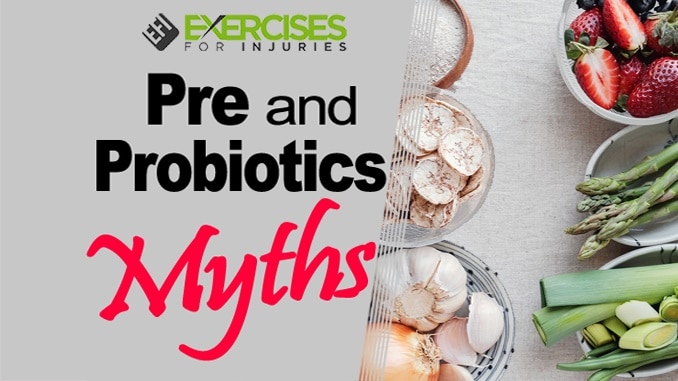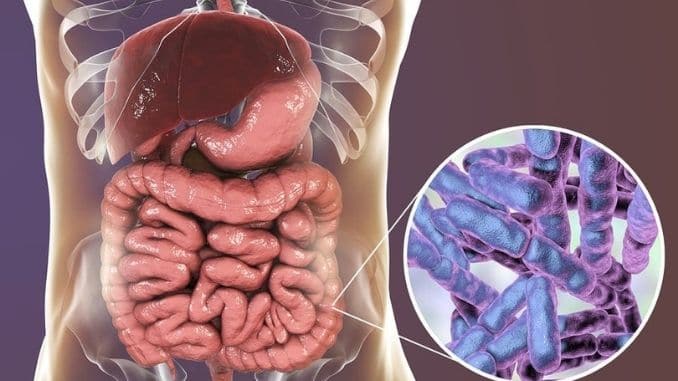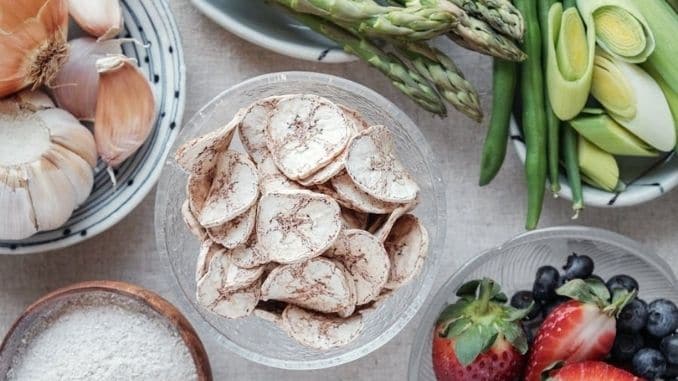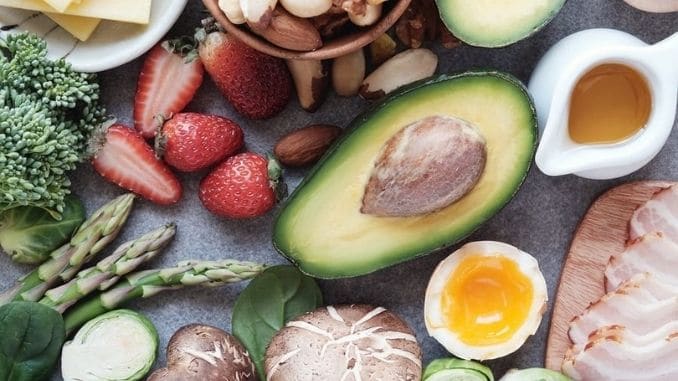
Probiotics and Prebiotics
What’s the difference between prebiotics and probiotics? While you may already be somewhat familiar with probiotics, the concept of prebiotics could be entirely new. There are vast differences between probiotics and prebiotics. Both are essential for optimal health and wellness. Read on to find the truth about probiotics and prebiotics.
Probiotics
Probiotics are live microorganisms in the lining of the digestive tract that help your body to fight infection, absorb nutrients and crowd out harmful bacteria. According to the National Center for Complementary and Integrative Health, “Large numbers of microorganisms live on and in our bodies. In fact, microorganisms in the human body outnumber human cells by 10 to one.” It makes good sense to overpopulate the body with friendly bacteria (probiotics) and create an unwelcome environment for harmful microorganisms.
For years now, we’ve heard about the healthful benefits of probiotics. Kefir, yogurt, and kombucha are filling shelves at the supermarket, promising to give us better digestion, immune system improvements, healthy weight management and more.
Benefits of Probiotics
When we see products labeled with probiotic claims everywhere, even stocked at the gas station mini-mart, it’s easy to dismiss probiotics as another fad in the food industry. However, despite the hype, probiotics are incredibly beneficial living organisms — vital for all sorts of bodily functions.
-
Improved Digestion
When looking at the overall benefits of probiotics, the one most studied is the digestive benefit. A study published in the American Journal of Clinical Nutrition focused on the effects of probiotic consumption and functional constipation in adults. The researchers found that probiotics helped move things along quite a bit. They also found that probiotic consumption improved stool consistency and frequency without causing adverse issues.
Another study that was featured in the Journal of the American Medical Association showed improved digestion among people who were taking prescribed antibiotics. Study participants who were taking probiotics along with antibiotics were 42 percent less likely to experience antibiotic-associated diarrhea than those who didn’t take probiotics.
The Journal of Infection recently put out a study concerning irritable bowel syndrome (IBS) and probiotics. They found that probiotic intake and restoring the gut bacterial composition have been shown to reduce or eliminate symptoms of IBS.
To date, several other studies have been completed linking probiotics to good digestive health.
-
Women’s Health
It seems probiotics are especially helpful for women. Dr. Edward Group, at Global Healing Center, says that probiotics offer specific benefits for women. According to Dr. Group, probiotics support vaginal health, urinary tract health, prevent yeast infections and bacterial vaginosis.
A double-blind study in Clinical Microbiology and Infection confirmed that women struggling with bacterial vaginosis could be helped with a vaginal probiotic tablet. For seven days, half of the women in the study were given a placebo. The other half were given a vaginal probiotic tablet. The women who received the probiotic had a cure rate of 61 percent while the placebo group had a cure rate of 19 percent.
-
Heart Health
A wealth of research has been conducted on the effect of probiotics on the heart. Studies that have been completed show how probiotics can lower blood pressure, triglyceride levels, and cholesterol as well as reduce inflammation.
One study out of Cleveland Clinic pointed to probiotics as another way to combat heart disease. The researchers found that the bacteria in the gut plays a strong role in processing compounds that contribute to the accumulation of plaque in the arteries.
One cardiologist shared that he takes probiotic supplements daily and requires his patients to do the same. More doctors are following suit and encouraging probiotic supplementation as a part of patient treatment plans.
-
Mental Health
A recent study from Leiden University’s Leiden Institute of Brain and Cognition in the Netherlands has provided evidence that probiotic intake has a positive effect on mental health. During the study, 20 healthy adults were given probiotic supplements, containing eight strains of bacteria each night for 28 days. Another 20 healthy adults were given a placebo, but they were told that they were also taking probiotics.
The group taking probiotics experienced mood improvements and a reduction of sad thoughts. They were shown images that invoked sadness, and they overcame the depressive thoughts more easily than the group that did not receive probiotic supplements.
-
Stronger Immune System
A 2008 study by Clinical and Experimental Immunology provided the research for the oft-quoted fact that 70 percent of our immune cells are located in our intestines. Taking probiotics seems to strengthen the immune response. Pharmacist Keith Miller explains, “Probiotics stimulate the immune lymphoid tissue found in the gut. When this immune tissue is exposed to bacteria, more cells and antibodies are produced, which circulate throughout the body and eventually promotes the overall body immune system — producing body-wide immunity to fight off bad bacteria known to cause disease.”
-
Weight Management
Multiple studies have shown that people of a normal, healthy weight have a different variety of bacteria in their gut than overweight or obese people. In fact, one study in mice showed that when researchers took gut bacteria from overweight mice and put it into the digestive tract of thin mice, the thin mice actually put on more weight.
The International Journal of Food Sciences and Nutrition compiled 20 studies with 25 trials and nearly 2,000 adult participants to understand the link between probiotics and weight management better. The study analysts found that probiotic intake did significantly reduce the body mass index (BMI) of most of the participants in the studies.
Good Sources of Probiotics
There are plenty of good food sources for probiotics. Some of the best include yogurt (cultured after pasteurization), kefir, sauerkraut, miso soup, kombucha, and kimchi. While these foods are excellent for adding probiotics to your diet, it’s also wise to consider taking a high-quality probiotic supplement as well.
-
Prebiotics
According to the Collins Dictionary of Biology, a prebiotic is “a nondigestible food ingredient that selectively stimulates growth and metabolism of certain beneficial microorganisms in the gut to improve health.” Prebiotics are not living organisms like probiotics. However, they pass through the small intestine undigested. Then, they’re fermented in the colon. This fermentation feeds the probiotic microorganisms and makes the digestive tract more friendly to beneficial bacteria. Asparagus, onions, and apples are among the more common prebiotic foods.
Benefits of Prebiotics
Although we’ve heard a great deal about the benefits of probiotics, the science behind prebiotics has largely been underreported. While it’s crucial that you take in probiotics, it’s just as important to make sure you’re also getting the valuable fiber and natural sugars from prebiotics to fuel the good bacteria in your gut.
-
Improved Digestion
Foods rich in fiber have always been known to improve digestion. Prebiotic foods are no exception. The American Journal of Clinical Nutrition released a study showing that when your body processes prebiotics, it produces short-chain fatty acids that improve and support healthy digestion.
Consuming prebiotics can also help relieve constipation and make bowel movements easier and more frequent.
-
Calcium Absorption
Eating prebiotic foods can help the body better absorb calcium and other nutrients. A study out of Purdue University in West Lafayette, Indiana, showed that the same short-chain fatty acids that improve digestion also help the bones retain calcium. On average, the study participants had improved calcium retention of 12 percent when they consumed prebiotic fiber over four weeks. Increased calcium retention will lead to greater bone density and reduce the risk of osteoporosis.
-
Weight Management
Prebiotic foods can help people shed unwanted pounds. Fibrous prebiotic foods will help you to feel fuller for longer periods of time. If you consume more prebiotic foods, you’ll likely eat less and lose weight.
Science Daily also put out a study that showed how regular consumption of prebiotic fiber helped obese children reduce their body fat percentage.
People who consume less prebiotic foods are more likely to become overweight and obese. Prebiotics can play a significant role in healthy weight management.
-
Stronger Immune System
Earlier, we outlined the benefits of probiotics for a stronger immune system. Researchers have also found that adding prebiotic foods to the diet can strengthen the body’s immune response. Most likely, the immune system is boosted because of the prebiotics feeding the probiotics and helping to increase the population of good bacteria in the gut.
Good Sources of Prebiotics
Prebiotics can be found in supplement form, but they’re also very easy to incorporate into your regular diet. Some of the best sources of dietary prebiotics include onions, radishes, apple skins, garlic, chia seeds, yams, and carrots. That’s not all though. Tomatoes, berries, and cabbage are also on the list with mangoes and ginger root.
The Truth About Probiotics and Prebiotics
It has been said that if the digestive tract is a bed of lovely flowers, probiotics are the seeds planted beneath the soil, and prebiotics is the fertilizer to the soil that provides nutrients to the plants.
Probiotics and prebiotics are some of the most healthy and beneficial elements of overall nutrition and good health. Both probiotics and prebiotics work to enrich the healthy bacteria in our digestive tracts and promote a disease-fighting, nutrient friendly atmosphere. We need both prebiotics and probiotics for our bodies to function optimally.
For healthy, tasty meals that will help you lose weight and fight inflammation, check out The Home Cook’s Guide to Healthy Eating, here!






